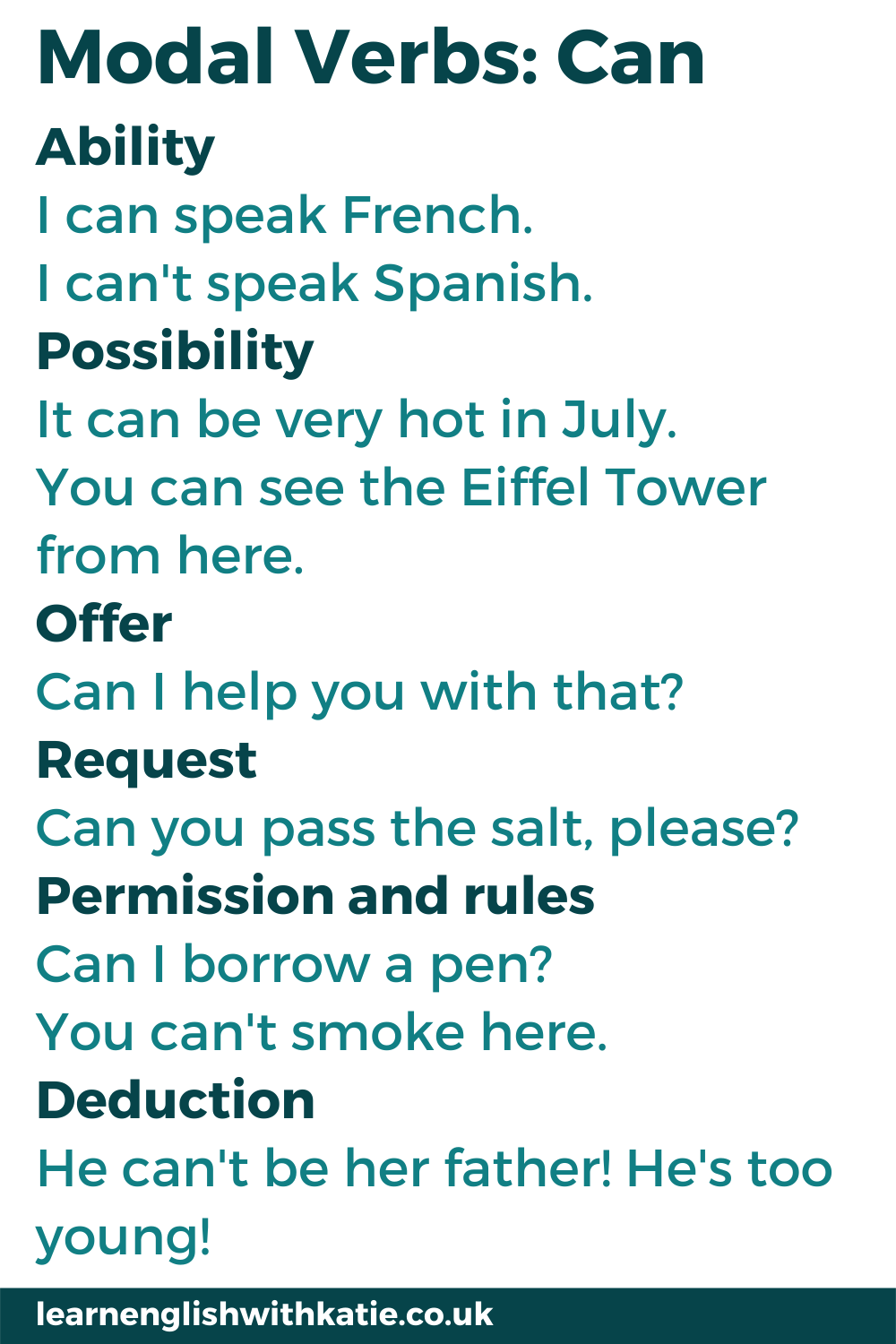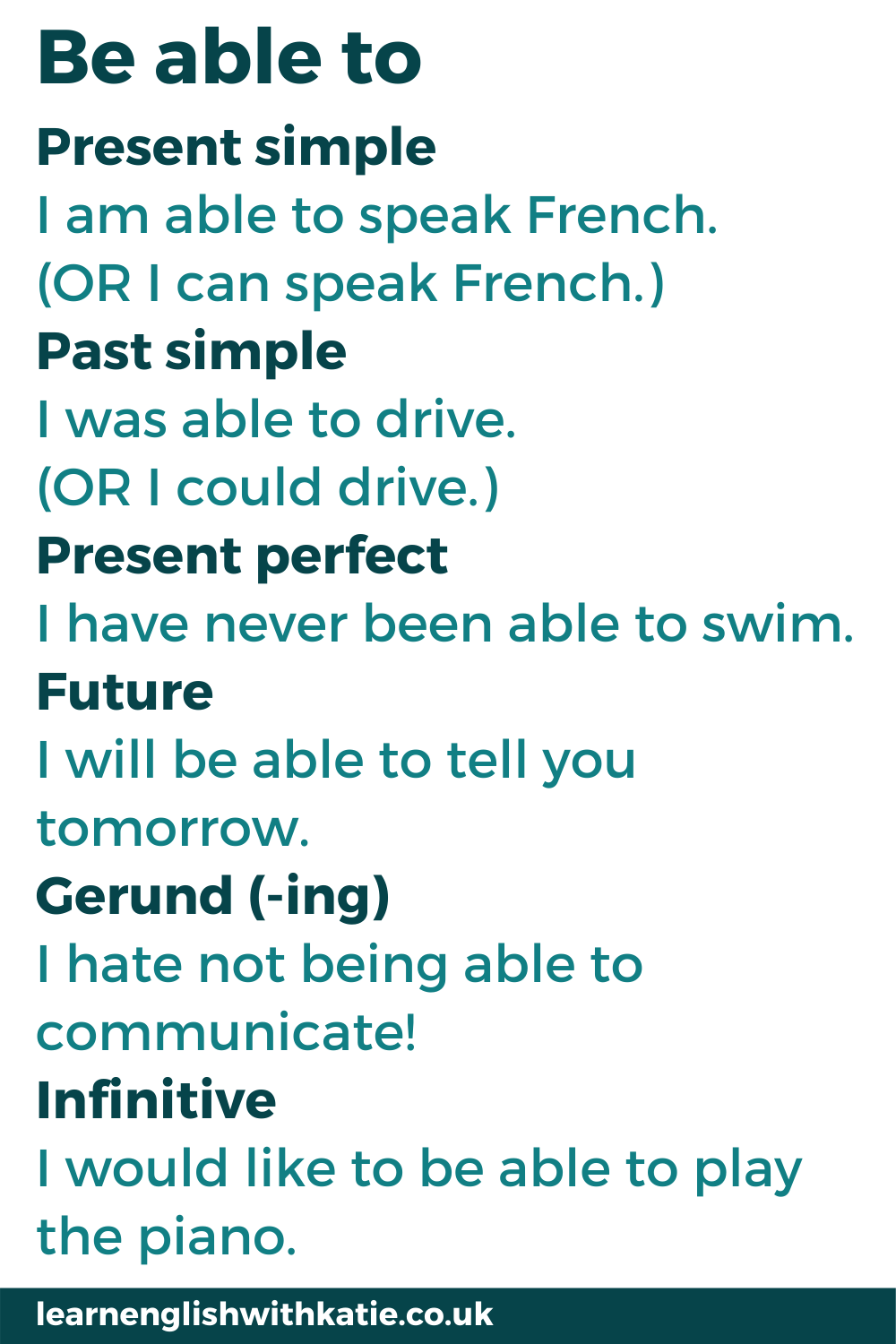|
This is the first in a series of posts about modal verbs. They are quite difficult for learners because one modal verb can have many different uses. Let's start with an easy one - "can". This post will teach you the different meanings of "can" and when we can't use it! We can use "can" to talk about: 1. Ability I can speak French. I can't speak Spanish. Can you swim? 2. Possibility It can be very hot in July. You can see the Eiffel Tower from here. 3. Offers Can I help you with that? Can I get you a cup of coffee? 4. Informal requests Can you pass the salt, please? Can you help me with something for a minute? 5. Permission and rules Can I borrow a pen? You can smoke in the garden but you can't smoke here. 6. Deduction He can't be her father, surely! He's too young! She can't have gone home. Her coat and bag are still here. "Be able to" This is an alternate way to say "can". I am able to swim = I can swim. "I am able to" sometimes sounds more formal than "can". However, sometimes it isn't possible to use "can" and we have to use "be able to" instead. This is because "can" only has a present simple and a past simple form. (More about "could" in another post coming soon.) If I want to use another tense or form, I have to use "be able to". For example: I have never been able to swim. (present perfect) I will be able to tell you tomorrow. (future) I hate not being able to communicate. (gerund) I would like to be able to play the piano. (infinitive) To get a free modal verb reference sheet, click the button below:
0 Comments
Your comment will be posted after it is approved.
Leave a Reply. |
About the blogFollow the blog for mini lessons and tips on how to improve your English. Categories
All
Archives
July 2024
|


 RSS Feed
RSS Feed
